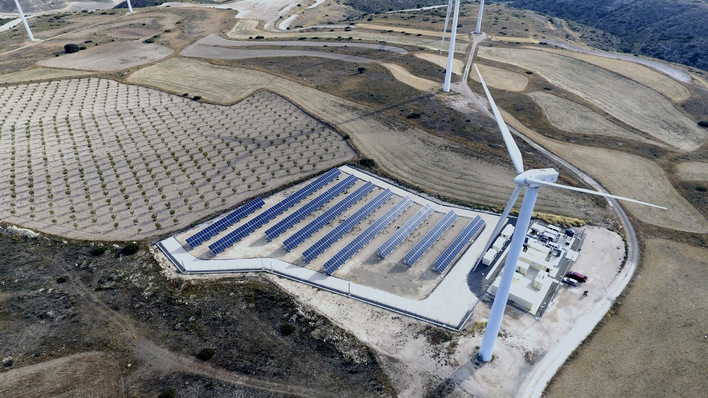Renewable energies are expected to account for 80-90% of electricity generation worldwide by 2050. Due to their dependence on weather conditions, wind and solar energy cannot provide a constant base load at all times of the day.
Tion Renewables is investing in both infrastructure and energy transition companies to take advantage of the full range of opportunities presented by the growing global effort to decarbonise our electricity system. Tion Renewables has a portfolio of wind and solar farms across Europe, holds a stake in European IPP Clearvise AG and has priority access to a pipeline of more than 5 gigawatts of renewable energy projects, including 1.5 gigawatts of battery storage projects.
utility-scale energy storage market expected to grow
The company stresses that measures must be taken to compensate for these fluctuations. The good news is that such imbalances or fluctuations can be effectively mitigated using battery energy storage systems (BESS). BESSs have a fast response time in the millisecond range and a high efficiency (~90%).
See also: Energy storage systems make strong gains in Germany
They are better suited than other technologies to compensate for both short-term and intraday imbalances in power generation. Thanks to significant cost reductions, BESS will play an important role in stabilising the grid of the future. This is reflected in many national targets. The market for utility-scale energy storage worldwide is expected to grow to a cumulative total capacity of 250 gigawatts by 2030, almost eight times the currently installed storage capacity.
How to make money from BESS
To monetise these benefits, BESS can participate in three main revenue streams:
- Ancillary services: Balancing services for sudden imbalances in power generation and consumption in the grid caused by power plant outages, sudden weather changes, etc.
- Wholesale: injection (purchase of electricity) in times of low prices and discharge (sale of electricity)
in times of high prices on the spot markets at the power exchanges
- Capacity markets: procurement of generation capacities by grid operators for predetermined periods in the future.
Electricity price volatility likely to benefit investors
Investors can expect returns of between 8 and 10% from these revenue streams for BESSs in Germany and the UK. There is a dependence on market prices and the fact that the technology is relatively unproven at present. As the technology becomes more proven, lenders will also become more experienced in financing BESSs. Improved access to debt financing is likely to bring upside potential for equity investors.
See also: 35 trillion US dollars needed by 2030 for energy transition
BESSs will benefit from the increasing electricity price volatility caused by the increase in the share of renewables in the grid. This is in marked contrast to the returns from renewable energy power plants, which could potentially be cannibalised by their own expansion. BESSs are therefore a good way to additionally diversify the portfolio of a company that is already invested in wind and solar parks. (nw/mfo)








